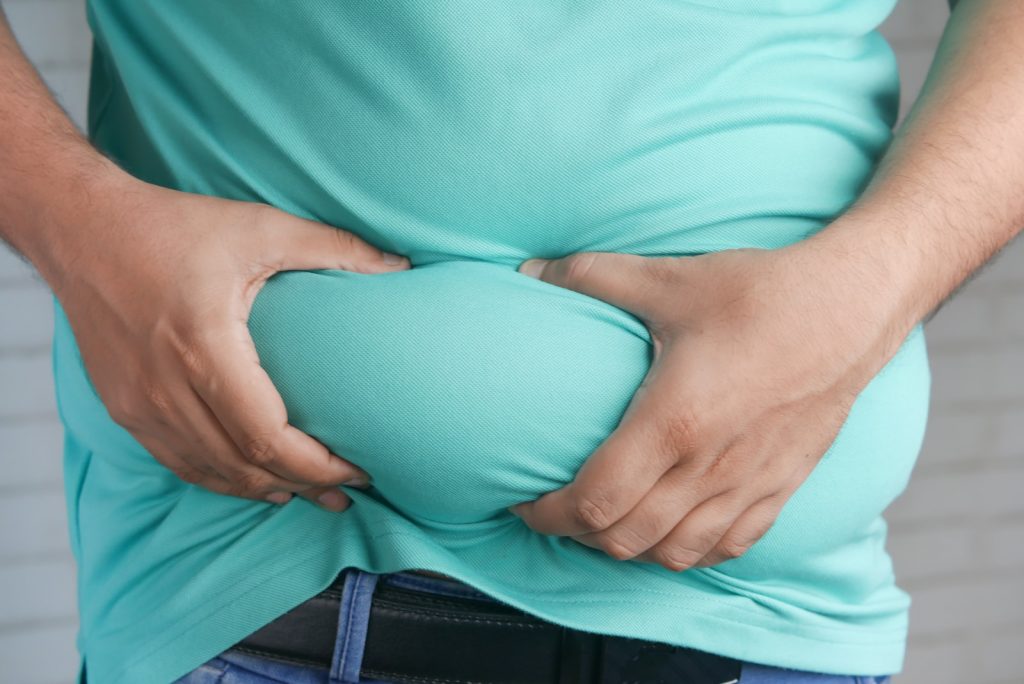Mark Sisson famously referred to 150+ grams of carbohydrates a day as producing “insidious weight gain,” and Gary Taubes’ best-selling book, Good Calories, Bad Calories, tells the reader over and over (and over and over) that carbohydrates make us fat. The believers of the Dr. Atkins dietary principles, the low-carbohydrate paleo philosophy, or any other low- carbohydrate or ketogenic dietary advice are all on board. But are they right? Will that baked potato, that piece of toast with a bit of jam, or the brownie really lead to “insidious weight gain,” simply because of the carbohydrates?
Simply put, the idea that carbohydrates have some sort of superpower that inherently balloons up humans’ midsections is absurd. There is no evidence to support this idea. In fact, the evidence is actually rather overwhelmingly against the theory that carbohydrates make people fat. In fact, research has shown that higher intakes of sugar are associated with leanness (Anderson, 1995).
One theory put forth as to why carbohydrates make people fat (which they don’t) is the insulin theory. This theory states that insulin prevents people from burning fat. And since carbohydrates stimulate insulin increases in the blood the theory concludes that carbohydrates make people fat by preventing them from burning fat. This would be a good theory if it was tenable.
Unfortunately for proponents of the theory, it’s not true, because in reality, things don’t work like that. In reality, though one of the functions of insulin is to suppress fatty acid metabolism, it does so because it is prioritizing the metabolism of available glucose. Once glucose is no longer available, the body will resort to burning fatty acids. That’s how it works. (That is, unless fatty acid metabolism is impaired.)
Let’s say that you have just eaten a baked potato without any butter. I know it sounds pretty unappetizing, but you’ve done it for science. Once your body begins to absorb the carbohydrates, it will begin to produce insulin – a fair amount, as it turns out. Let’s say that that potato has about 30 grams of carbohydrates that your body will break down into glucose. So your blood now has a bunch of glucose in it. The insulin will help move glucose into cells for use as fuel, and when it does so, it will be signaling the cells to stop burning fatty acids (if they have been) because glucose is available instead. Yay for insulin, because it has just done a great thing! It has fueled your cells with the energy from the food you just ate. Once the glucose from the food that was just eaten has been used, the body will then return to using stored fuel, whether that is glucose or fatty acids.
Next – again, in the name of science – let’s say that you eat a spoonful of coconut oil. Being a fat, coconut oil doesn’t trigger insulin secretion. Instead, as the fat is broken down and absorbed into the blood, the cells will use the fat as fuel. Once the fat is used up, the body will then return to using stored fuel.
Hopefully you can see that there is actually very little difference between carbohydrates and fat (the two primary fuel sources in the body) when it comes to the potential to increase fat stores. Basically, what is eaten gets used or stored. Then stored fuel is used. The insulin theory is bogus.
The other theory that is popular is the leptin resistance theory. This theory says that carbohydrates inhibit feelings of satiety and therefore lead to overeating, which causes obesity. It’s a nice theory, but it’s not supported by the evidence. While there is some evidence that some types of carbohydrates (think free fructose, for example) can have this effect, it doesn’t extend to all carbohydrates. In fact, as we’ve already seen, carbohydrates trigger insulin secretion, and insulin triggers feelings of satiety. The studies bear this out in the real world. Carbohydrates (as in real food) don’t make people eat past satiety, though specific types of industrial and refined carbohydrates may have such an effect.
Not only do studies show that carbohydrates don’t make people fat, but real world examples of cultures that depend on large amounts of carbohydrates – sometimes as much as Son- percent of calories coming from carbohydrates – demonstrate that they are generally lean, fit, and healthy. Consider the darlings of researchers, the Kitavans, who in the 1990s were shown to eat nearly 70 percent of their calories from carbohydrates (Lindeberg, Nilsson-Ehle, Terent, Vessby, & Schersten, 1994). Obesity is nonexistent in the population. Nor is insulin resistance found among the people, for that matter. And there are a great many other examples showing the same thing. Carbohydrates do not make people fat.
Interestingly, the same researchers who studied the Kitavans also showed that in though eating large amounts of carbohydrates, the Kitavan people had lower levels of insulin compared to European populations (Lindeberg, Eliasson, Lindahl, & Ahren, 1999). So once again, the claim that eating carbohydrates causes people to become fat through increased insulin levels is bogus.
What does make people fat? Honestly, we don’t know. There are many theories, and none of them, as yet, can explain obesity in every case. Some factors that may contribute are yo-yo dieting, chronic stress, ionizing radiation, many pharmaceuticals, chronic insufficient sleep, and inflammation. And it does seem that there may be a link between certain types of industrial carbohydrates and obesity. Notably, free fructose as found in very high fructose corn syrup (added to sodas) may play a role, but that’s a far cry from blaming carbohydrates as a whole. The evidence strongly suggests that sugars and starches found in real foods, even partially refined carbohydrates, are not inherently fattening.



